Divine Liturgy in Vodocha ( 01.06.2009 )
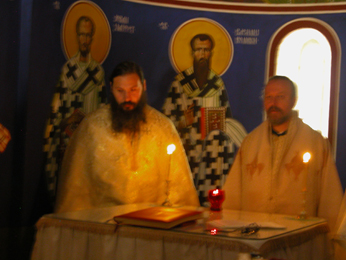
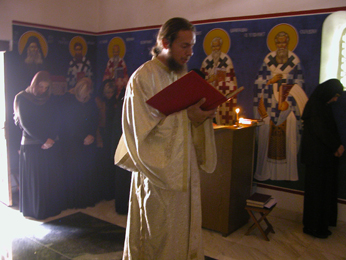
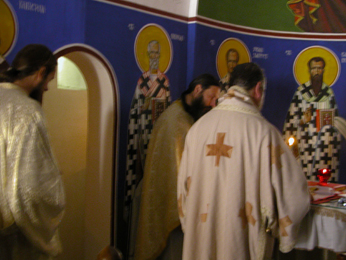
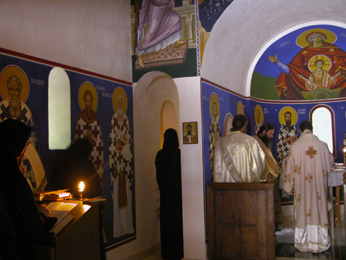
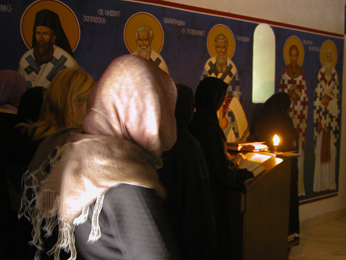
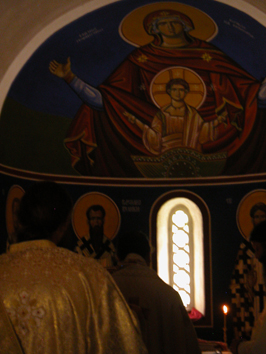
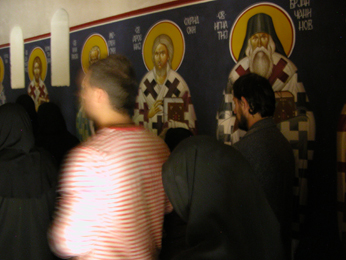
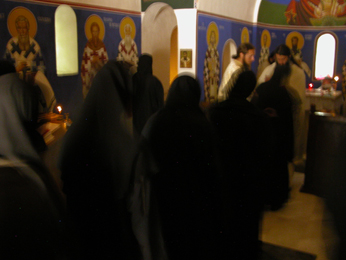
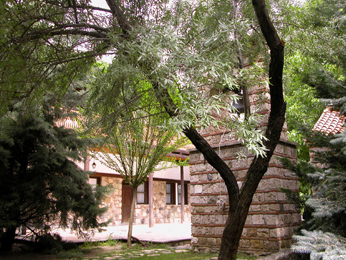
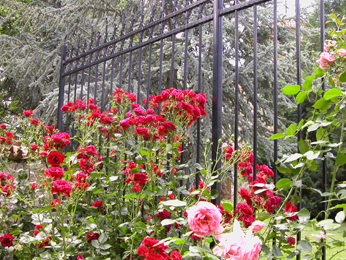
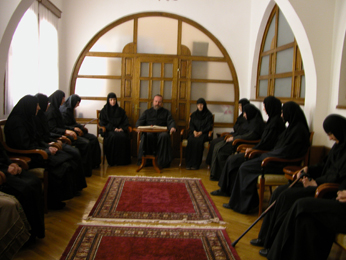
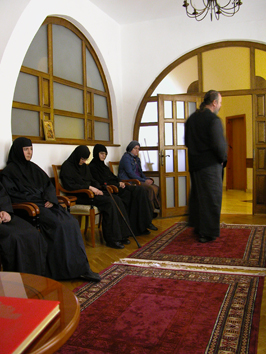
A Hardened Heart
The Lord said to the Jews who came to Him, “While you have the light, believe in the light, that you may become sons of light.” These things Jesus spoke, and departed, and was hidden from them.
But although He had done so many signs before them, they did not believe in Him, that the word of Isaiah the prophet might be fulfilled, which he spoke: “Lord, who has believed our report? And to whom has the arm of the Lord been revealed?” Therefore they could not believe, because Isaiah said again: “He has blinded their eyes and hardened their hearts, lest they should see with their eyes, lest they should understand with their hearts and turn, so that I should heal them.” These things Isaiah said when he saw His glory and spoke of Him.
Nevertheless even among the rulers many believed in Him, but because of the Pharisees they did not confess Him, lest they should be put out of the synagogue; for they loved the praise of men more than the praise of God.
Then Jesus cried out and said, “He who believes in Me, believes not in Me but in Him who sent Me. And he who sees Me sees Him who sent Me. I have come as a light into the world, that whoever believes in Me should not abide in darkness. And if anyone hears My words and does not believe, I do not judge him; for I did not come to judge the world but to save the world” (John 12:36-47).
Children, in today’s Gospel reading we again encounter the combination of blind eyes i.e. blinded mind and hardened heart, well familiar to us. And the Lord once more, this time through the Old testament and the prophet Isaiah vividly reminds us of that team: mind and heart—blind mind and hardened i.e. insensible heart. I think that this is the right moment to remind ourselves of the completely opposite combination: eyes that receive sight or open (of course, again an image of the mind) and a burning heart. Anyhow, the point is that it is a matter of two inseparable notions: mind and heart. The orthodox biblical anthropology, confirmed and poured through the living experience into the works by the Holy Fathers of the Church, clarifies this inseparability: the mind has its essence and its energy. The essence of the mind is in the heart, which is the spiritual center of the human being. Therefore, the union of the energy of the mind with its essence takes place in man’s heart. Therefore, healed mind or healed rational part of the spiritual center has a man who has united the energy of his mind to the essence of his mind. Thus, here is where their unbreakable relation stems from, and therefore everything related first of all to the heart is related also to the mind.
The mind is darkened and does not know God’s road. The heart is hardened, insensible. The demon linked with the passion to which we have submitted ourselves alertly guards its catch—the entry into the spiritual center of our being. Such a heart acquires a man to whom the satisfaction of the passions and committing of the sin through the habit have become his second nature. Now, how do we attain a healed mind—that is, a mind that has received sight and has opened to revelations, and to a heart that has compassion for all of the creation? How can our proud, distracted, and darkened mind become firstly humble, collected, and illumined, and our heart be aflame for the Lord? What kind of medicine and what food do our mind and our heart need? This is what I would like to remind you of today.
There is medicine and food for the mind, first of all for its energy, and there is medicine and food for the whole heart. There are general and specific medicine and food. General medicine and food for the mind are the repentant prayer, watchfulness over thoughts, and reading or hearing from the Holy Bible and the Holy Fathers’ works. General medicine and food for the heart are first of all good deeds, and then also the good word. We should pay equal attention to both upbringing of the mind and upbringing of the heart. We must not be one-sided, feed and heal only the mind or only the heart. It is particularly dangerous if we feed only the mind i.e. the reason, and this with reading and focusing on knowledge. Many are there today who make this error. This kind of knowledge brings pride, delusion, and destruction. It suffices that we ask ourselves just one question to examine ourselves: when was the last time we actually helped a man in need and consoled him? I am talking about someone outside our family and outside the circle of our friends, because even the unbelievers help their relatives and friends. And this was supposed to be our daily spiritual need, not only an evangelical task. And we wonder why the heart is hardened and without mourning… Therefore, if we have native intelligence, we should better pay more attention to nourishing the heart with good deeds, since through that we will also nurture the mind with true knowledge. Love brings humility and upgrades.
Specific medicine and food for both the mind and the heart, especially for us monastics, are: non-identification with thoughts, feelings, and desires until they are checked with the spiritual father—opposite to disobedience; proper confession—opposite to judging and condemnation; and continuing ascetical-hesychastic struggle—opposite to a hired servant’s attitude. These three rules describe the struggle for adaptation of the mode of our life to the first level of our spiritual development—the level at which we purify our heart from the passions. Not the level at which a deluded man may think he were, but the level that is specifically and precisely indicated by the quality of our prayer—first, prayer of the intellect and oral prayer; second, ascetical mind-and-heart prayer; and third, unceasing mind-and-heart prayer. And, a good deed for us monastics is not such that seems to us ethical, good, but such that is done according to God’s will, which we realize through our spiritual father’s word.
Specific food and medicine for the heart and the mind appropriate to the level at which we illumine our mind is the ascetical mind-and-heart prayer. It at the same time is a good thought, a good word, and a good deed for the Godman Christ, Who is imprisoned, alone, sick, a stranger, hungry etc. for our sake and for our salvation, in our heart. It at the same time is a good thought, a good word, and a good deed for our fellowman who is imprisoned, alone, sick, a stranger, hungry etc., with whom the Godman Christ identifies Himself, in our heart. We believe this to be also the road to transition from illumination of the mind to dawning of the Divine light in our heart: “While you have the light, believe in the light, that you may become sons of light… I have come as a light into the world, that whoever believes in Me should not abide in darkness.” This is not simple faith, but faith founded on experience, on previous knowledge by experience.
Genuine belief in essence is a harsh struggle, a proper one; it is not some faith without deeds or suspicious faith with a false struggle. The struggle that is in harmony with the stage of spiritual development is a testimony and indicator that we believe genuinely and properly. That is the road of them who have come to love the Divine glory and light instead of the human. That is the road of them whom God has glorified. That is the road of them whom we today praise and celebrate—the holy martyrs, the venerable mothers and fathers, and the fools for Christ. That is also the road of our fellow countryman, of our father and protector, the Holy Patriarch Leontius of Jerusalem.
Metropolitan Nahum of Strumica
P.S. As for the manifestations of the insensibility of the heart, it is best for you to read about it in the eleventh step of